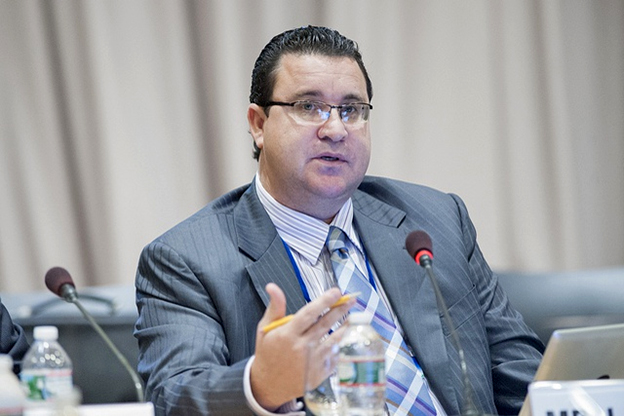The Government of Ghana has received approval for $200 million in financing from the International Development Association (IDA) for the Ghana Tree Crop Diversification Project (TCDP) to diversify and grow its economy through modernising agriculture to accelerate productivity, resilience, and industrialization.
This financing will directly benefit 12,800 cocoa farmers and 39,975 cashew, coconut, and rubber farmers, and their households.
An additional 20,000 jobs are expected to be created in downstream value addition by mobilizing private capital. Nearly 40 per cent of on-farm beneficiaries will be women.
While Ghana’s tree crops sector plays an enormous role in agriculture and the economy, the sector can contribute more substantially to Ghana’s economy and society than it currently does, including job creation, export revenue generation, and poverty reduction of the country’s poorest people. Cocoa, cashew, coconut, and rubber segments employ some 728,000, 100,000, 10,364, and 4,322 farmers respectively.
Challenges limiting the development of the sector include low and stagnant productivity, weak institutional capacity, poor sector governance, and poor climate resilience due to weak adoption of climate-smart agriculture technologies and practices.
There is little value addition and weak coordination between actors of the tree crops' value chains. There is also a lack of connectivity between farmers and improved inputs and services providers, and vulnerability to pests and diseases.
In addition, deforestation, child labour, and the persistence of gender inequities in these agricultural subsectors are of concern.
“The World Bank is pleased to support Ghana’s medium-term national development strategy through the Ghana Tree Crop Diversification Project and directly contribute to the Government of Ghana’s priorities for economic and social development in the Coordinated Program of Economic and Social Development Policies, for an inclusive, resilient, and sustainable economy,” said Pierre Laporte, World Bank Country Director for Ghana, Liberia, and Sierra Leone
“The project will support private investments in Small and Medium Enterprises (SMEs) in cocoa, cashew, and coconut value chains and in cashew and coconut processing units.”
The TCDP will support demand-driven research and enhance on-farm productivity and resilience to improve productivity, profitability, and climate resilience in the cocoa, cashew, coconut, and rubber value chains. The project will support post-harvest management, value addition, and market access.
It will support the deployment of public resources to crowd-in private sector investments in the sector where possible, accelerating economic transformation and developing critical agricultural value chains.
The project will also strengthen farmer-based organisations as well as the institutional capacity of the Ghana Cocoa Board (COCOBOD) and Tree Crops Development Authority (TCDA) and improve sector governance for the competitive and sustainable development of tree crops.
It will improve value chain governance through traceability in tree crops and other investments, technical assistance, and other programmatic support to reform the sector.
The project includes a child labour sub-component to identify and mitigate child labour risks in project communities.
“The project will focus on closing gender gaps in the tree crops sector by increasing the ability of women to obtain productive resources and increase incomes through tailored access to inputs, advice, and financial services”, said Ashwini Sebastian, Senior Agric Economist and Task Team Leader for TCDP.
“Beneficiaries will be in 11 districts in 6 regions (Western North, Eastern, Savanna, Bono, Bono East, Eastern).
"Roughly 185 SMEs in cocoa, cashew, and coconut value addition and processing will also be direct beneficiaries through project matching grants, technical assistance support, and access to markets and services. Of these, at least 60 per cent will be female-owned SMEs”.
The TCDA will house a Project Coordination Unit, while COCOBOD will house a Project Implementation Unit.
The project will support the institutional capacity of both entities and monitor the coordination of project activities closely.
Latest Stories
-
The warped logic of Ghana’s Aged Vehicle Ban: Killing an Industry while ignoring real risks
2 minutes -
Health minister begs striking nurses, says their demands not captured in 2025 budget
5 minutes -
GH¢2bn demand threatens fiscal stability—Dep. Fin. Min. pleads with striking nurses
9 minutes -
2025 Johnnie Walker Annual Ghana Golf Championship: Two days of golf, community, and celebration
23 minutes -
AMA rolls out waste sorting initiative to combat poor waste disposal
23 minutes -
Ghana to miss cocoa production target in 2024/2025 crop season
32 minutes -
Using BoG reserves for cocoa purchases a “dangerous precedent”— Banking consultant warns
45 minutes -
How Bibiani GoldStars wrote a fairytale to win the Ghana Premier League
54 minutes -
IPPG condemns passage of new fuel levy without stakeholder consultation
54 minutes -
Several people confirmed dead in Austria school shooting, police say
60 minutes -
Ofori-Atta’s lack of candor justifies Interpol Red Notice—Martin Kpebu
1 hour -
Amanda Clinton writes: Understanding Interpol Red Notices; legal pathways, oversight, and misconceptions
2 hours -
Ofori-Atta family’s ‘persecution’ claim permitted but not necessarily right – Martin Kpebu
2 hours -
Total amount of money in circulation hits GH₵71.6bn in 2024 – BoG
2 hours -
WAFU A and B U-20 Boys’ Cup postponed indefinitely
2 hours

